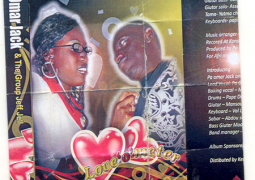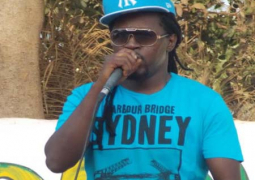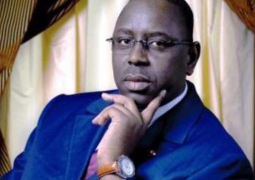Following a stalemate in the Presidential Election of Gambia National Olympic Committee (GNOC), the International Olympic Committee has written a strong letter to clearly outline its stance on the matter.
The letter signed by Pere MIRÓ, IOC Director on NOC Relations, was addressed to Ms Beatrice ALLEN, Acting President, and Mr Peter PROM, Secretary-General, of GNOC.
Below is the full text of the letter:
Situation of your NOC
Dear Ms Allen,
Dear Mr. Prom,
Thank you very much for your communication dated 31 October 2010 and for your detailed report about the current situation of your NOC in relation, in particular, to what happened on the occasion of your NOC Elective General Assembly meeting of 20 October 2010.
In view of the facts that are clearly described in your report, we would like to summarise the IOC position as follows:
1. In general, the relations between Government authorities and the NOC / Olympic Movement at national level must be governed by the following key principles (which were widely discussed and clearly reaffirmed by the IOC and the Olympic Movement as a whole, in particular on the occasion of the Olympic Congress that took place last year in
Sports development today requires collaboration with the Government authorities, who play a fundamental role in this connection. This is why the Olympic Movement wishes to have, and encourages, harmonious cooperation with the competent Government bodies, in order to develop relations on good terms and complementary actions which will benefit sport and the athletes.
However, such cooperation must take place with absolute and mutual respect for the autonomy of these organisations, and respecting their respective powers, prerogatives and remits.
It is this balance which, if it is respected, can best foster the concerted and complementary development of sport and Olympism in every country.
This means, therefore, that the Government / public authorities must respect the autonomy of the organisations of the Olympic Movement (in particular the NOC and the National Sports Federations), and must in no way intervene in or interfere with the internal affairs of these organisations. The internal operations, operating procedures, decision-making mechanisms, holding of meetings, election arrangements, etc. all come under the remit of these organisations, and must be defined in their own statutes (adopted by the general assembly of each organisation), pursuant to the rules of the international sporting bodies to which such organisations are affiliated.
This does not of course prevent the sports organisations from deciding (at their discretion) to invite representatives of the Government / public authorities to their meetings, or from communicating their activity reports and/or their accounts in the interests of information and transparency, and in order to work on good terms with the Government / public authorities. Moreover, if the sports organisation receives public funds, it must, logically and legitimately, account for the use of such funding to the Government / public authorities concerned. This must not, however, be used by the Government / public authorities to justify interference in the internal operations of these organisations. It should rather contribute, complementarily and jointly, to the development of these organisations and thus sporting activity as a whole.
We also understand and deeply respect the fact that national sports organizations exist within the context of sovereign states. But as soon as these organizations choose and decide freely to be affiliated to or recognised by international sporting bodies (in particular the IOC or the International Federations), and thus to take part in international sports events, these organisations must also respect, and be in a position to respect, the rules of these international sporting bodies.
Moreover, it may be useful to recall that according to the Olympic Charter it is the IOC that has the jurisdiction to recognise a “National Olympic Committee” as such.
Only those NOCs that are duly recognised as such by the IOC have the right to designate and identify themselves as “National Olympic Committees” (and may be authorised by the IOC to use the reference to the word “Olympic” and any other Olympic properties that belong exclusively to the IOC). This means in particular that the existence, authority and legitimacy of a “National Olympic Committee” come in essence from the IOC, with all subsequent rights and duties mentioned in the Olympic Charter.
Lastly, permit us to quote a few self-explanatory references to the Olympic
Charter, as follows:
Rule 28.5: In order to fulfill their mission, the NOCs may cooperate with governmental bodies, with which they shall achieve harmonious relations.
However, they shall not associate themselves with any activity which would be in contradiction with the Olympic Charter. […]
Rule 28.6: The NOCs must preserve their autonomy and resist all pressures of any kind, including but not limited to political, legal, religious or economic pressures which may prevent them from complying with the Olympic Charter.
Rule 28.9: Apart from the measures and sanctions provided in the case of infringement of the Olympic Charter, the IOC Executive Board may take any appropriate decisions for the protection of the Olympic Movement in the country of an NOC, including suspension of or withdrawal of recognition from such NOC if the constitution, law or other regulations in force in the country concerned, or any act by any governmental or other body causes the activity of the NOC or the making or expression of its will to be hampered. […]
In view of the above, it appears clearly that the decision taken by the representatives of the Ministry of Youth and Sports and the National Sports
Council (who were invited as observers) to cancel your NOC General Assembly meeting that was taking place on 20 October 2010 is an obvious interference with the internal affairs and operations of your NOC, which is in contradiction with the IOC principles and rules of the Olympic Charter.
We therefore deeply regret this action and we reiterate the fact that it is your NOC, through its appropriate organs, which is the sole entity responsible for deciding upon its internal operations (such as the election process) in accordance with its Statutes and the Olympic Charter.
Therefore, we ask your NOC to continue proceeding as planned initially and, in particular, to decide upon the date on which your NOC Elective General Assembly shall be re-scheduled and to kindly inform us about.
We do hope that this clarification will enable your NOC to conduct its election process in a peaceful atmosphere and to operate without any external interference, in accordance with your NOC Statutes and the Olympic Charter, and that mutual respect and understanding of each one’s role and responsibilities will now prevail between Government authorities and the Olympic Movement in Gambia.
We also hope that having a clear understanding of each one’s competency and jurisdiction will help the Government authorities and your NOC to work as partners in order to develop harmonious, complementary and constructive relations for the good of sport and the athletes in Gambia.
We count on everyone’s cooperation to achieve those objectives and we remain at your entire disposal should you need any further assistance or clarification in this matter.
We thank you for your continuous collaboration and we kindly ask you to keep us informed of any further development.
Copy:
- Jacques ROGGE, IOC President
- Intendant General Lassana PALENFO, ANOCA President




